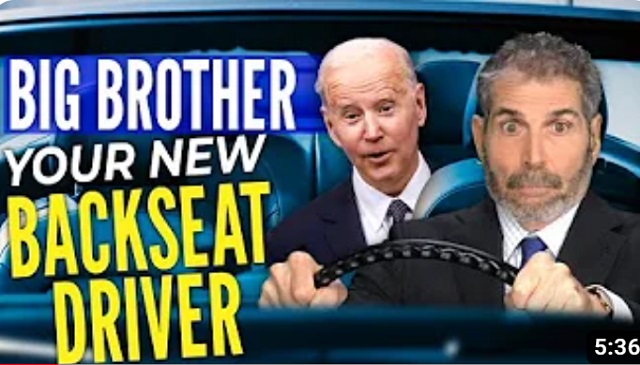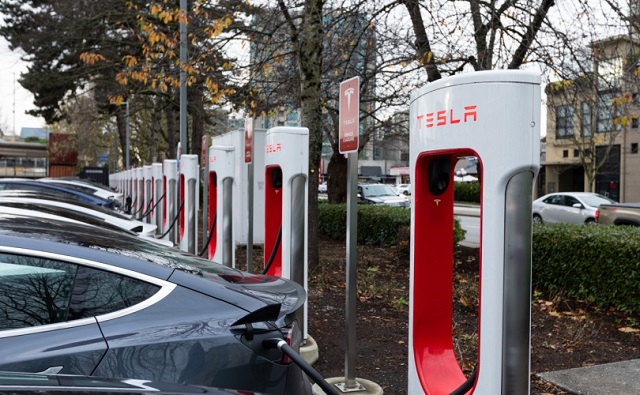Automotive
Nissan Motor board fires Ghosn as chairman following arrest

TOKYO — Nissan Motor Co. fired Carlos Ghosn as chairman Thursday, curtailing the powerful executive’s nearly two decade long reign at the Japanese automaker after his arrest for alleged financial improprieties.
In an hours-long meeting, the company’s board of directors voted unanimously to dismiss Ghosn as chairman and as a representative director, Nissan said in a statement. It said its own internal investigation, prompted by a whistleblower, found serious misconduct including under-reporting of his income and misuse of company assets.
It was a stunning downfall for one of the biggest figures in the auto industry, a man who helped drive turnarounds at both France’s Renault SA and at Nissan and then managed an alliance between them that sold 10.6 million cars last year, besting its rivals.
Nissan said in a statement filed to the Tokyo Stock Exchange that its investigation uncovered misuse of company investment funds and expense money for personal gain.
Earlier this week, Renault voted to keep Ghosn as its chief executive but appointed Thierry Bollore, its chief operating officer, as its interim chief.
Another Nissan executive, Greg Kelly, was arrested in Japan on suspicion of collaborating in the wrongdoing and also will be dismissed as a representative director, Nissan said. Their replacements will be decided later, it said.
Ghosn, 64, is suspected of under-reporting $44.6 million in income from 2011 to 2015, according to Tokyo prosecutors.
Nissan’s board consists of nine members, including Ghosn and Greg Kelly. The seven other board members voted at the meeting, including two members from Nissan and two from Renault.
Ghosn and Kelly will remain on Nissan’s board for now as that decision will be up to shareholders. No date has been set yet for a shareholders meeting.
Ghosn is also chairman at Mitsubishi Motors Corp., a smaller Japanese automaker that’s partnering with the Renault-Nissan alliance and plans to hold a board meeting next week.
Ghosn has been held since his arrest Monday at a Tokyo detention
Under Japanese law, suspects can be held for 20 days per possible charge without an official indictment. Additional charges can be tagged on, resulting in longer detentions. Neither has been charged so far.
The maximum penalty upon conviction for violating finance and exchange laws is 10 years in prison, a 10 million yen ($89,000) fine, or both.
A French citizen born in Brazil, Ghosn became something of a corporate superstar in Japan as he led Nissan’s revival from near bankruptcy after Renault sent him to help in 1999.
Ghosn served as Nissan’s chief executive from 2001 until last year. He became chief executive of Renault in 2005, leading the two automakers simultaneously. In 2016, he also became chairman of Mitsubishi Motors Corp. after Nissan took it into the alliance.
Kelly, 62, joined Nissan, maker of the Leaf electric car and Infiniti luxury models, in the U.S. in 1988. He became a board member in 2012. His background is in human resources and alliance management.
Analysts say the future of Nissan’s alliance with Renault may be at stake, though Nissan’s statement Thursday said the company’s leadership was determined to minimize the impact from Ghosn’s case on the partnership. Renault owns 43
“The longstanding alliance partnership with Renault remains unchanged,” the Nissan statement in English said, stressing the alliance rather than the misdeeds.
It also said the board will study setting up a third-party committee to beef up governance in management and compensation at Nissan.
CEO Hiroto Saikawa, in a lengthy news conference on Monday, said too much power had been concentrated in Ghosn, with too little credit given to the many others working for the company’s success.
Janet Lewis, managing director and head of industrial research, Asia, at Macquarie Capital Securities in Tokyo, said in an interview that an adjustment was needed to give Nissan more say in the alliance with Renault.
The partnership remains crucial for both companies, she said, since apart from financial ties the companies share technology and parts.
The automakers need to be more like roommates than a married couple, “So they have to find a way to share their house and share all of their expertise because it’s very necessary in terms of new automotive technology, new platform development,” Lewis said.
“They need to figure out how they can continue this and still live happily together in the same house.”
___
Associated Press writer Mari Yamaguchi contributed to this report.
___
Yuri Kageyama is on Twitter at https://twitter.com/yurikageyama
On Instagram at https://www.instagram.com/yurikageyama/?hl=en
Yuri Kageyama, The Associated Press
Automotive
Biden’s Kill Switch: The Growing Threat of Government Control of Your Car

From StosselTV
The government may soon be able to shut down your car. Biden’s $1.2 trillion infrastructure bill includes a kill switch for new cars.
In an effort to reduce drunk driving, government wants devices in cars that will monitor and limit impaired driving. But there’s a big problem: these devices give government control over your car.
Automotive engineer and former vintage race car driver Lauren Fix points out the dangers in my video.
After 40+ years of reporting, I now understand the importance of limited government and personal freedom.
——————————————
Libertarian journalist John Stossel created Stossel TV to explain liberty and free markets to young people.
Prior to Stossel TV he hosted a show on Fox Business and co-anchored ABC’s primetime newsmagazine show, 20/20.
Stossel’s economic programs have been adapted into teaching kits by a non-profit organization, “Stossel in the Classroom.” High school teachers in American public schools now use the videos to help educate their students on economics and economic freedom. They are seen by more than 12 million students every year.
Stossel has received 19 Emmy Awards and has been honored five times for excellence in consumer reporting by the National Press Club. Other honors include the George Polk Award for Outstanding Local Reporting and the George Foster Peabody Award.
————
To get our new weekly video from Stossel TV, sign up here: https://www.johnstossel.com/#subscribe ————
Automotive
Trudeau’s electric vehicle mandate could cause Canada’s power grid to collapse, analysis shows

From LifeSiteNews
Not only would the need to generate more electric power skyrocket, but prices and taxes would soar for consumers, a Fraser Institute study found.
A noted fiscally conservative think tank warned that a proposed federal mandate from the government of Prime Minister Justin Trudeau to ban the sale of new gasoline/diesel-only powered cars after 2035 and allow electric-only sales is an unrealistic fantasy that would cause massive chaos by threatening to collapse the nation’s power grids.
“Requiring all new vehicle sales in Canada to be electric in just 11 years means the provinces need to substantially increase their power generation capabilities, and adding the equivalent of 10 new mega-dams or 13 new gas plants in such a short timeline isn’t realistic or feasible,” said G. Cornelis van Kooten, a Fraser Institute senior fellow and author of “Failure to Charge: A Critical Look at Canada’s EV Policy.”
“Canadians need to know just how much additional electricity is going to be required in order to meet Ottawa’s electric vehicle mandate, because its impact on the provinces — and taxpayers and rate payers — will be significant.”
Van Kooten’s in-depth analysis of the impending electric vehicle (EV) mandate was released March 14 and estimates that to meet the 2035 target national electric generation would need to go up some 15.3% in only 11 years, which is a monumental task.
This would mean building no less than 10 new mega hydro dams nationwide, or at least 13 new large natural gas plants, according to Van Kooten. For those pushing so-called “green” power, that would mean some 5,000 new wind turbines, which all must still be backed up by natural gas peaker plants because of their unreliability when the wind is not blowing.
Given the length of time it takes to build a natural gas plant due to red tape, costs, and other factors, van Kooten observed that “the major obstacle relates to the likelihood of constructing sufficient power generating capacity to meet the anticipated demand EVs would impose on electricity grids.”
“The real-world situation is not as easy as merely replacing current ICE vehicles with EVs, and there are many obstacles to be overcome on the path of electrifying the personal vehicle fleets within Canada,” he said.
“The type of electricity that goes into the grid would also be a big consideration when switching over to EVs, as jurisdictions will need to increase their electricity production capabilities with green sources that meet the additional hourly load requirements and can be employed quickly to balance intermittent renewable energy sources.”
Van Kooten’s study looks at how much extra electricity will be required in all of Canada’s biggest provinces, Ontario, British Columbia, and Quebec to meet the 2035 EV mandate.
The Fraser Institute, for context, observed that “It took approximately 10 years to plan and pass environmental regulations, and an additional decade” to build British Columbia’s new hydroelectric Site C dam.
Trudeau plans to ban the sale of new gasoline-powered cars after 2035. The EU (European Union) also has an EV mandate in place for the same year.
Canadian Environment Minister Steven Guilbeault announced just before Christmas the “Electric Vehicle Availability Standard.” This is a plan that will mandate that all new cars and trucks by 2035 be electric, which would in effect ban the sale of new gasoline- or diesel-only powered vehicles after that year.
The reality is that electric cars cost thousands more to make and buy, are not suited to Canada’s cold climate, offer poor range and long charging times (especially in cold weather), and have batteries that take tremendous resources to make and are hard to recycle.
Just over a week ago, LifeSiteNews reported that a 2022 study found that electric vehicles pollute at a rate far higher than their gasoline or diesel-powered counterparts.
Not all Canadian provinces are on board Trudeau’s EV dictate
In January, LifeSiteNews reported that Alberta’s Minister of Energy criticized the federally funded Canadian Broadcasting Corporation (CBC) for publishing a report stating that electric cars are better able to handle cold weather than gas-powered ones, all at the same time an extreme cold snap gripped much of western Canada and nearly caused Alberta’s power grid to collapse due to its increased reliance on so-called renewable energy.
Alberta Premier Danielle Smith has promised that she intends to fight with “everything” at her disposal what she called an “unconstitutional” new federal government EV mandate as well as a net-zero power generation, which if implemented would lead to guaranteed power outages.
She noted that when it comes to Trudeau’s EV mandate, “Ottawa is trying to force increased demands on the electricity grid while simultaneously weakening Alberta’s and other provinces’ grids through their federal electricity regulations.”
Trudeau’s EV mandates have also been called out by the automotive industry in Canada. The Canadian Vehicle Manufacturers’ Association said in response to the new EV mandate that forcing people to buy EVs will “disproportionately impact households living in rural and northern communities that may have lower access to public charging infrastructure.”
-

 Business2 days ago
Business2 days agoFederal government’s ‘fudget budget’ relies on fanciful assumptions of productivity growth
-

 Health1 day ago
Health1 day agoTransgender activists are threatening the author of scathing UK report on child ‘sex changes’
-

 conflict1 day ago
conflict1 day agoCol. Douglas Macgregor torches Trump over support for bill funding wars in Ukraine and Israel
-

 Alberta1 day ago
Alberta1 day agoRed Deer Doctor critical of Alberta’s COVID response to submit report to Danielle Smith this May
-

 COVID-192 days ago
COVID-192 days agoInquiry shows Canadian gov’t agencies have spent $10 million on social media ads for COVID jabs
-

 Alberta1 day ago
Alberta1 day agoAlberta’s baby name superstar steals the show again
-

 Censorship Industrial Complex1 day ago
Censorship Industrial Complex1 day agoNow We Are Supposed to Cheer Government Surveillance?
-

 Fraser Institute1 day ago
Fraser Institute1 day agoBill Maher is right about Canadian health care








